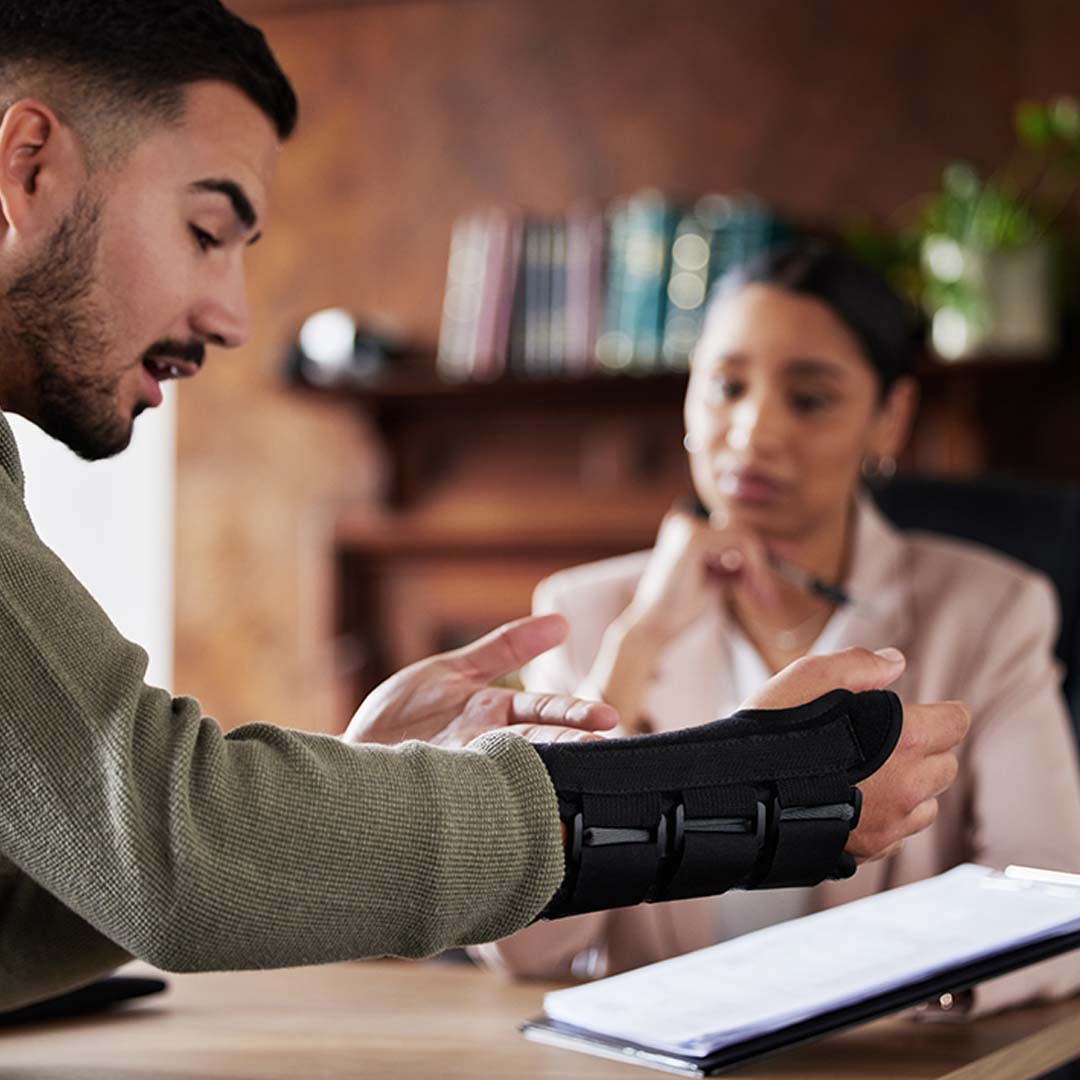 Posted On: 11/02/2023
Posted On: 11/02/2023Understanding Louisiana’s Injury Law Landscape
Legal Rights and Responsibilities
In Louisiana, every individual has certain legal rights and responsibilities when it comes to personal injuries. These rights can be best understood and protected with the aid of a Personal Injury Lawyer. For those living in Baton Rouge, New Orleans, or even Lafayette, finding a qualified Personal Injury Lawyer in Louisiana via the Personal Injury Law website ensures you’re receiving top-notch legal consultation.
Louisiana’s legal system places an emphasis on the responsibility of every citizen to avoid causing harm to others. If someone does not uphold this responsibility, they could be liable for the injuries caused. The Personal Injury Lawyer in Alabama, for instance, deals with similar cases but given the unique legal nuances of each state, it’s vital to get legal representation specific to Louisiana.
Negligence, Fault, and Comparative Negligence
Negligence is often the cornerstone of personal injury claims. If someone acts carelessly and causes harm, they can be held liable. Personal Injury Law sheds light on this topic, explaining how fault is determined and how negligence is assessed.
In Louisiana, the concept of comparative negligence comes into play. This means if you’re partly at fault for the accident, your compensation could be reduced proportionately. For example, if you’re found to be 20% at fault in a car accident, your compensation from the other party would be reduced by 20%. This is why, when dealing with complex situations, contacting a Personal Injury Lawyer in Texas or even a Personal Injury Lawyer in Mississippi might not be as effective as consulting one familiar with Louisiana’s specific legal landscape.
The Initial Steps Post-Accident
Immediate Actions at the Accident Scene
If you’re involved in an accident, your immediate reaction plays a crucial role in the success of your Personal Injury Claim in Louisiana. Firstly, ensuring everyone’s safety is paramount. If anyone is injured, medical attention should be sought immediately. Secondly, it’s essential to document the accident scene. This could include taking photographs, noting the conditions, and collecting witness testimonies.
In the aftermath of the accident, emotions might run high. It’s crucial to remain calm and refrain from admitting fault or discussing details with anyone, except the police or your injury lawyer. By consulting the ‘Personal Injury Lawyer in Arizona’ or ‘Personal Injury Lawyer in Arkansas’ sections on Personal Injury Law, victims can gain insights into how accident scenes are managed in other states, aiding in understanding the importance of these immediate actions.
Accident Report and Police Documentation
Post-accident, one must report the incident to the relevant authorities. In cases of traffic accidents, like motorcycle accidents or pedestrian accidents, it’s mandatory to file a police report. This report becomes a significant piece of evidence in the personal injury claim process.
Additionally, it’s a wise move to contact a qualified injury law firm immediately after the accident. They can guide you on necessary steps, ensuring all documentation is correctly filed. The Personal Injury Lawyer in Connecticut and the Personal Injury Lawyer in Delaware sections on the website can provide perspectives on documentation procedures in different states.
Deciphering the Type of Accident and Claim
Auto, Truck, and Motorcycle Accidents
Traffic accidents are among the most common incidents leading to personal injury claims in Louisiana. Each type, whether car accidents, truck accidents, or motorcycle accidents, has specific nuances. For instance, truck accidents might involve third-party liability if a company owns the truck.
Whether you’re in Baton Rouge or New Orleans, it’s crucial to identify the exact nature of the accident. This classification aids in the claim process and determines the kind of legal advice and representation required. By perusing the Personal Injury Lawyer in Iowa or Personal Injury Lawyer in Kansas listings, one can get a more comprehensive view of how different accident types are handled across the nation.
Slip and Fall, and Workplace Injuries
Slip and fall incidents, along with work-related injuries, often hinge on proving negligence. The key is showcasing that the premises owner or employer did not take necessary precautions to prevent the accident. Given the tricky nature of these claims, having an experienced injury lawyer by your side is indispensable.
Moreover, workplace injuries can lead to workers’ compensation claims, further complicating the process. For insights into how other states address these claims, potential claimants can explore the Personal Injury Lawyer in Maine and Personal Injury Lawyer in Maryland sections on the Personal Injury Law website.
Medical Considerations in Injury Claims
Importance of Immediate Medical Attention
After an accident, it’s crucial to seek medical attention, even if you feel fine. Some injuries, like whiplash, might not manifest immediately. Moreover, a prompt medical evaluation becomes pivotal evidence in a personal injury claim.
It substantiates the claim and determines the extent of medical expenses, pain and suffering, and lost wages.The Personal Injury Lawyer in New Mexico and Personal Injury Lawyer in New York sections on the website emphasize the importance of this step, echoing its significance across states.
Rehabilitation, Therapy Costs, and Future Medical Bills
Rehabilitation and therapy often follow serious accidents. These expenses, coupled with future medical bills, form a significant portion of the compensation sought. An adept injury lawyer will ensure all these costs, present and future, are considered in the claim.
Drawing insights from the Personal Injury Lawyer in North Carolina and Personal Injury Lawyer in North Dakota sections, it’s evident that regardless of the state, accounting for all medical-related costs is a universal requirement in injury claims.
Building a Solid Evidence Portfolio
Photographs, Witness Statements, and Testimonies
Evidence is the backbone of any personal injury claim. A robust evidence portfolio can significantly strengthen the case. This includes photographs of the accident scene, witness statements, and testimonies. Such evidence showcases the accident’s circumstances and the defendant’s potential negligence.
Exploring the Personal Injury Lawyer in Oregon and Personal Injury Lawyer in Pennsylvania sections, one realizes the universal importance of evidence in determining negligence and liability.
Medical Records, Bills, and Injury Severity Evaluation
Medical documentation is not only vital for health reasons but also forms the crux of the compensation claim. Bills detail the financial burden faced, while medical records chronicle the injury’s severity. Combining these with an injury severity evaluation helps in determining the potential settlement or lawsuit value.
For insights into how medical evidence plays a role in other states, one can peruse the Personal Injury Lawyer in Rhode Island and Personal Injury Lawyer in South Carolina sections on the Personal Injury Law website.
Dealing with Insurance Entities
Initial Contact with Insurance Adjusters
After an accident, it’s common for an insurance adjuster to reach out. Remember, their primary goal is to save the insurance company money. While they might appear friendly, it’s essential to be cautious. Speaking to an injury attorney before providing any statement can prevent any unintentional self-incrimination. Victims from truck accidents, motorcycle accidents, or pedestrian accidents should especially be wary as they can involve multiple insurance entities.
In Louisiana, the Personal Injury Lawyer in Louisiana page on the Personal Injury Law site can guide you on how to interact with adjusters. From car accidents in Baton Rouge to slip and fall incidents in Lafayette, having the right advice is critical.
Insurance Claim Process and Negotiations
Initiating the insurance claim process begins with filing a claim, typically done by notifying the at-fault party’s insurance company. Work-related injuries and product liability cases can sometimes involve third-party liability, making the claim process slightly more complex.
The negotiations phase follows, where the insurance adjuster evaluates the damages and offers a settlement. This is where they might challenge the medical expenses, therapy costs, or even the accident liability. Leveraging insights from Personal Injury Lawyer in Massachusetts or Personal Injury Lawyer in New Jersey might offer a comparative view on negotiations.
Lastly, if negotiations stall, the claimant might consider legal proceedings to reach a just settlement. Personal Injury Lawyer in Oregon and Personal Injury Lawyer in Pennsylvania offer insights on when to escalate claims.
Understanding Policyholder Rights and Uninsured Motorist Claims
Louisiana is not a no-fault state. Hence, establishing fault is paramount. Understanding your rights as a policyholder can be crucial. Sometimes, you might encounter an uninsured motorist, complicating the claim process. In such cases, your personal injury protection comes into play.
For victims in New Orleans or Lafayette, Personal Injury Law offers guidance on policyholder rights, ensuring you’re not shortchanged by insurance entities.
Engaging with Legal Professionals
Role of an Injury Attorney and Contingency Fees
An injury attorney is not just about representing you in court. They guide you through the complexities of the claim process, help gather evidence, and ensure your rights are protected. Most injury lawyers work on contingency fees, meaning they only get paid if you win.
From car accidents in Baton Rouge to wrongful deaths in Lafayette, hiring legal representation is pivotal. Personal Injury Lawyer in California or Personal Injury Lawyer in Colorado can provide more insights on attorney roles.
Selecting an Injury Law Firm and the Benefits of Specialized Lawyers
Not all lawyers are created equal. When making a Personal Injury Claim in Louisiana, seeking a specialized injury lawyer can make a significant difference. They understand the nuances of injury law and can advocate effectively.
Personal Injury Law’s, Find Personal Injury Lawyers Near You page can aid in choosing the right law firm. Whether you’re dealing with malpractice in New Orleans or traffic accidents in Lafayette, specialized guidance is crucial.
Legal Procedures and Court Processes
Filing the Lawsuit for Plaintiff vs. Defendant Dynamics
Once you decide to file a lawsuit, understanding the roles of the plaintiff (you) and the defendant (the party you’re suing) becomes essential. The lawsuit begins with the filing of a complaint, detailing the reasons and the compensation sought.
Exploring the Personal Injury Lawyer in Alaska or Personal Injury Lawyer in Arizona sections can provide more insights into the dynamics between the two parties.
Discovery, Depositions, and Mediation
The discovery phase involves both sides collecting evidence. Depositions, where parties are questioned under oath, form a crucial part of this. If both sides are open to it, mediation can be a way to resolve the claim without going to court.
The Personal Injury Lawyer in Iowa and Personal Injury Lawyer in Kansas sections provide more insights into these processes.
What to Expect for Arbitration vs. Court Trial
If mediation fails, the case can go to arbitration or a court trial. While arbitration is more informal, a court trial involves a judge or jury deciding the outcome. Knowing what to expect in both scenarios is crucial.
The Personal Injury Lawyer in Michigan and Personal Injury Lawyer in Minnesota pages offer further insights into these proceedings.
Financial Aspects and Compensation
Understanding Damages Compensatory and Punitive
In Louisiana, victims can seek compensatory damages (for actual losses) and, in rare cases, punitive damages (to punish the defendant). Understanding these can help in setting realistic compensation expectations.
Personal Injury Lawyer in New Mexico and Personal Injury Lawyer in New York can provide a broader perspective on damages.
Calculating Lost Wages, Pain, Suffering, and Consortium
Apart from medical bills, victims can claim for lost wages, pain and suffering, and loss of consortium. Calculating these can be intricate, requiring expert guidance.
Whether you’re in New Orleans or Baton Rouge, the Personal Injury Law’s Our Blog section can offer more insights into these calculations.
Settlement Dynamics In-Court vs. Out-of-Court Settlements
While out-of-court settlements are quicker, sometimes going to court might result in a better compensation. Knowing when to choose which is pivotal for a successful Personal Injury Claim in Louisiana.
Personal Injury Lawyer in North Carolina and Personal Injury Lawyer in North Dakota offer comparative insights into settlement dynamics.
Conclusion and Moving Forward
Reiterating the Importance of Legal Guidance
Making a personal injury claim in Louisiana is not a straightforward process. The numerous laws, from the statute of limitations to understanding third-party liability, make it imperative to seek legal advice. Personal Injury Law stands as a beacon, guiding victims through the murky waters of legal proceedings. An injury attorney is more than just a representative in court.
They offer a shoulder to lean on, providing comfort during one’s most challenging times, especially after traumatic events like car accidents or work-related injuries. With cities like Baton Rouge, New Orleans, and Lafayette having their unique laws and nuances, it becomes even more critical to have a local injury lawyer by your side.
Resources and Support in Louisiana
Louisiana offers a plethora of resources for accident victims. From the Personal Injury Lawyer listings spanning across states like Alabama, Florida, and Texas, to specialized listings like Personal Injury Lawyer in Louisiana, victims have a wide range of options for legal representation. Additionally, platforms like Our Blog and Contact Us for Personal Injury Law pages on Personal Injury Law provide a wealth of knowledge and means to connect with professionals who can assist. Beyond legal support, it’s crucial to tap into local community resources, be it support groups, medical facilities, or state-sponsored programs, to ensure a holistic recovery process.
Making a personal injury claim in Louisiana requires diligence, knowledge, and the right legal support. With the right steps, victims can navigate the complexities, ensuring they get the justice and compensation they deserve. Personal Injury Law remains committed to guiding you every step of the way. If you or a loved one needs assistance, don’t hesitate to reach out and harness the expertise that’s readily available.


